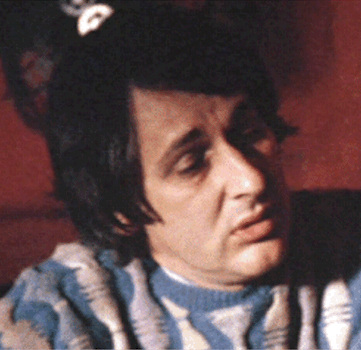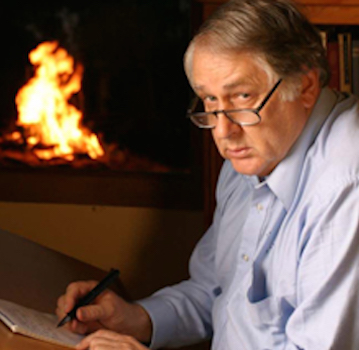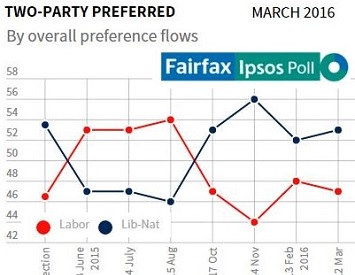Longtime Labor Party insider Bob Ellis endorses Bill Shorten in his quest to become the next Opposition Leader.
BILL SHORTEN has stayed at my house, and I at his, and in the seven years I’ve known him since we met first at Beaconsfield and he became more known to the nation, I’ve been struck by particular, varying things about him.
One was his calm under pressure.
"Mate, we are where we are," he said when Beazley, his hero, was overthrown by Rudd and Gillard.
He had been offered the leadership, or so I have been told, by some party heavies even before he entered parliament, but would not "dud Kim", and was dismayed at Rudd’s ascension. Nonetheless, he got on with it and campaigned for the ‘dream ticket’, massed his union money behind it, and helped it win.
Another was an ability to articulate the dividedness that preceded a decision without losing his audience’s respect.
As he said to the Beaconsfield miners:
"Did we get the best deal possible? Probably not. Are we three million dollars better off than we were this morning? Absolutely. All those in favour?"
He hated unionists’ funerals but, mate, we are where we are, and if he had to look their capitalist tormentors in the face and be firm and polite, this was his job, as a workers’ advocate in the worst of times, which the Howard years were.
He had not just a Catholic conscience, but a Jesuit skill at argument, and he used it with tireless and sinuous vigour.
At Beaconsfield, I watched him, like Hawke, plunge into a pub and come out with fourteen new lifelong friends. Up close and vernacular, with a big voice that could command a whole wharf unamplified, he was very much the union rouser. Up close and careful, in the corporate boardrooms, he would get what he could for his people, understanding the limits of what could be.
Another quality ‒ and the noun is overworked, and sometimes falsely used ‒ was his compassion.
He came back one morning near tears after two hours with some disabled people. "I met some heroes this morning, mate," he said.
He came to see the disabled cause as the last great battle, the last civil right, getting them, as Martin Luther King did, "up the front of the bus".
When given by Rudd, his foe, this difficult portfolio ‒ and not even, insultingly, a ministry of it ‒ he said:
"I’m going to make this the job everybody wishes they had."
And he worked and worked, thereafter, to change Australia with it.
It was the greatest achievement of the Rudd-Gillard years and the most endangered — when Abbott, as he is bound to, redefines ‘disability’ and wrenches the money away from it, as he will.
I quarrel with Bill, a free marketeer, a good deal.
[caption id="attachment_47437" align="alignright" width="208"] (Caricature by John Graham / johngraham.alphalink.com.au)
I don’t fully understand why insurance, for instance, should not be more punished for swindling flooded shopkeepers out of their money, but there you go. He understands world finance post-meltdown ‒ or I hope he does ‒ and I do not. Like Hawke, he has steeped himself in the immensity and the difficulty of the subject and come out wise, and torn, and visibly thinking, minute by minute, on what is required.
His best speech ‒ and it was self-composed ‒ was at the Labor Party Conference two years ago. Imagine a walled city the size of Perth, he said. A walled city of the disabled — and they can’t get out of it. A prison that size. With that many people.
It thunderstruck that audience and was, Bruce Hawker beside me said:
"...the best audition for prime minister I’ve heard."
Bill stuck with Gillard for two testing years, even after he was offered the job of Treasurer, tomorrow, if he defected. As with Beazley, he was loyal, to his own cost.
He could, I believe, himself have displaced Julia by merely putting up his hand, and then intriguing for a while, but he chose not to. He chose not to for a year, perhaps, and I wish he had.
I actually thought on the dreadful day when he, at last, for the party’s sake, went across to Rudd, that we’d end up with only twenty-five seats if he did not. The pain showed in his face, that he was putting his hand up then, for himself, but of course he was not. In his office, an hour before, no-one knew what he would do
It was his call and he was in pain. And, as always, the party came first.
And we are where we are.
And I hope he gets up this time.
Read also Lionel Grant's endorsement of Shorten's leadership rival Anthony Albanese by clicking here.
This work is licensed under a Creative Commons Attribution-NonCommercial-NoDerivs 3.0 Australia License









